Movie: Kenzo Tange's Yoyogi Olympic Arena by Harvard University design students
Movie: shadows dance across the surface of Kenzo Tange's 1964 Olympic stadium in Tokyo in this animation by graduate design students at Harvard University.
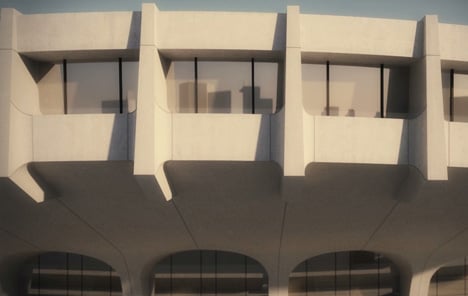
Emmet Truxes and Nathan Shobe worked alongside four other students to construct a computer model that analyses the structural joinery of the arena's tensile roof, before creating this animation showing each detail in turn.
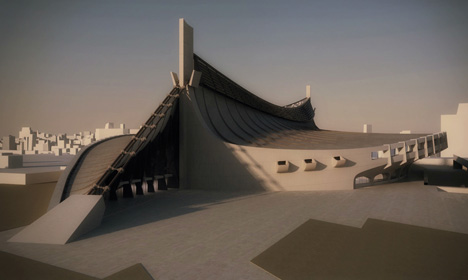
Japanese architect Tange completed the Yoyogi Olympic Arena in 1958 with the help of engineer Yoshikatsu Tsuboi and it is currently used as a football stadium by a number of Japanese teams.
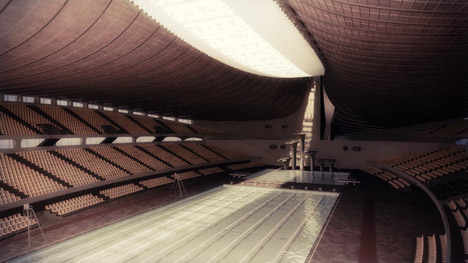
See more animations on Dezeen here »
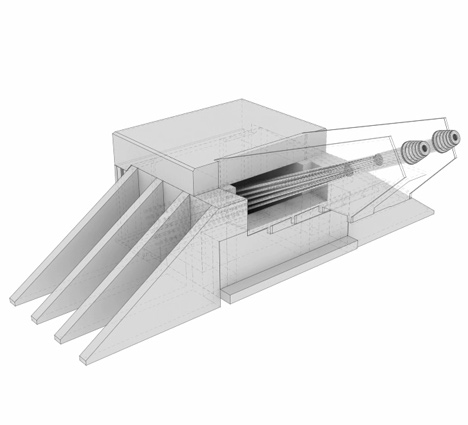
Movie soundtrack is by Gray Reinhard.
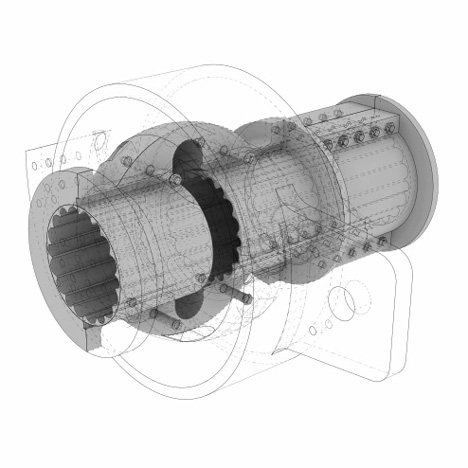
Here's some more explanation from architecture professor Mark Mulligan:
As we approach the centennial of Kenzo Tange’s birth (2013) and the 50th anniversary of the Tokyo Olympics (2014), the time seems right for a renewed appreciation of what many would call this architect’s greatest masterpiece: the 1964 Olympic Arenas at Yoyogi. The Main Arena’s complex structure, designed in collaboration with engineer Yoshikatsu Tsuboi, houses 15,000 spectators and features an innovative tensile roof inspired by suspension bridge technology. Tange’s particular genius shows in the arena’s exuberant exterior form, refined structural detailing, and interior daylighting.
This animated video began as a project for the GSD course “Innovative Constructions in modern Japan”, for which I asked a team of six students to model the Yoyogi Main Arena based on original drawings, and to analyze it in constructional terms. Of particular interest was the design of structural joinery that could accommodate continuous geometric change in the roof form during construction as successive layers were added. What emerged from this study, however, was something a great deal more fascinating – and challenging – than what we had anticipated. Rendering the computer models revealed how the arena’s elusive, curvilinear form radically transforms before our eyes, depending on viewing angle and sun position. Two students, Emmet Truxes and Nathan Shobe, continued working on the video after the class had ended to produce a lyrical meditation on the atmospherics of the Yoyogi Arena, with an original soundtrack contributed by Gray Reinhard.
Looking back now from an era whose advances in computer technology have given us a great deal of certainty in visualizing and evaluating complex structures, we are awed by the thought that Tange and Tsuboi produced such a work fifty years ago using only the most basic computing power, physical models, and a great number of drawings made by hand.